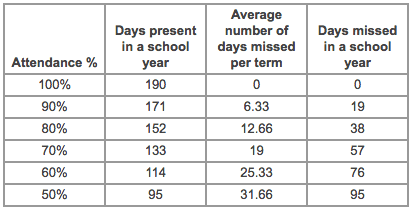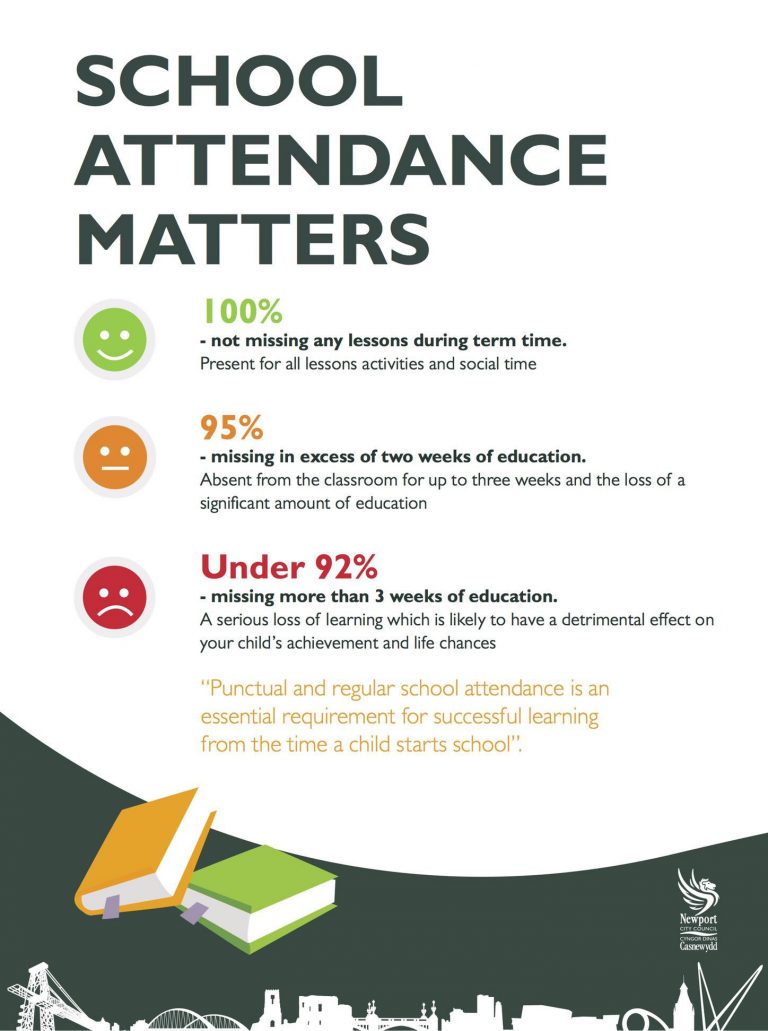“Every day counts, and every lesson matters.”
Attendance
Our Attendance Last Week
This graph shows each class’ attendance for the previous school week.

What the Research Shows…
At St Julian’s Primary, we believe that every school day counts! Attending school regularly is essential for your child’s learning, development, and future success.
- Better Learning – Children who attend school every day benefit from a full and engaging curriculum, helping them to build knowledge, confidence, and key skills.
- Friendships & Social Skills – School is a place where children make friends, develop teamwork, and learn how to communicate effectively with others.
- Routine & Good Habits – Attending school daily helps children establish good habits that prepare them for secondary school and future careers.
- Achieving Their Best – Studies show that children who attend school regularly achieve better results in reading, writing, and maths.
- Future Opportunities – Good attendance helps set the foundation for future success in education and work.
How is your child’s attendance?
Punctuality
Watch this video with some top tips from our voice club to make sure you’re on time for school…
- 5 minutes late every day = 3 days lost per year
- 10 minutes late every day = 6 days lost per year
- 15 minutes late every day = 10 days lost per year
- 20 minutes late every day = 13 days lost per year
- 30 minutes late every day = 19 days lost per year
Attendance Frequently Asked Questions
If your child is too ill to come into school, please phone the school on (01633) 631 790 and let us know. If there is no answer, please leave a message on our answer-phone stating: your child’s name, class and the reason for their absence. If we have not heard from you, you may receive a text message asking why your child is not in school.
We will inform you of your child’s attendance percentage regularly throughout the year.
If we become concerned about your child’s attendance, we will write to you and request that you come into school to discuss your child’s absences.
Newport Local Authority has an Education Welfare Service, who are responsible for investigating any long periods of absence, or regular periods of unauthorised absence. The Educational Welfare Officer regularly visits the school to check our records and will highlight any pupils with whom they have concerns about. Initially, they may contact parents of these children to enquire about the periods of absence. If there appears to be no genuine reason for regular periods of absence and the child’s attendance does not improve, the Educational Welfare Service will issue a Fixed Penalty Notice or will seek to prosecute the child’s parents.
Holidays should be taken outside of term time. We cannot authorise absence for a holiday taken during school term time unless there are exceptional circumstances. An example of an exceptional circumstance would be where a parent is in the Armed Forces and posted overseas during the school holiday periods therefore, preventing the family from having a holiday outside of school time.
Where there is an exceptional circumstance, proof must be provided to the school and only up to 5 days of absence will be authorised if the child’s attendance record over the previous 12 months is greater than 97%.
Parents wishing to take their children out of school during term time for any reason must complete an ‘Absence Notification Form’ and hand it in to the school office. You can collect a blank form from the school office, print a form using the link below or submit a from online by clicking this link – Absence Notification Form.
Fixed Penalty Notices can be issued for 20 sessions (10 days) of unauthorised holiday absence within a year.
If pupils have been invited to take part in other educational activities outside of school (eg. music exams, drama performances, sporting events) parents should inform the headteacher in writing, providing details of the event(s) along with proof of the event from the activity provider. The headteacher will then make a decision on whether to authorise the absence or not, depending on the child’s previous record of attendance.
Fixed Penalty Notices may be issued by the Education Welfare Service when a child has unauthorised absences from school, including holidays taken during term time or persistent lateness. The fine is £120 per parent, per child, but is reduced to £60 if paid within 28 days. Payment details are included on the notice and can also be found on the Newport City Council website. If the fine is not paid, the matter may lead to prosecution under Section 44 of the Education Act 1996.


